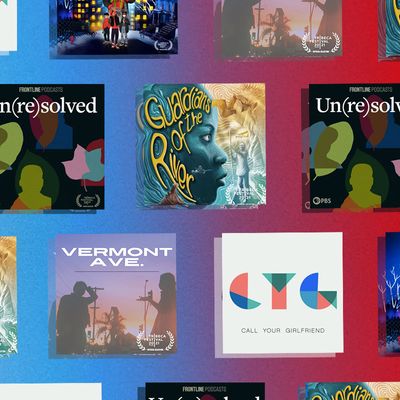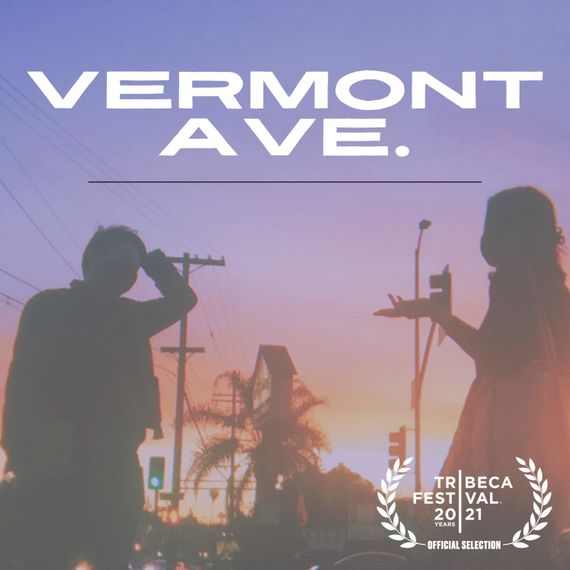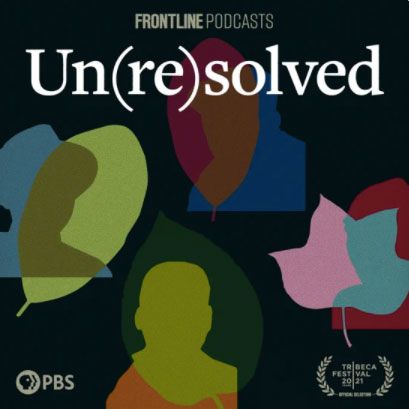
Tell me what youÔÇÖre listening to. Find me┬áon Twitter┬áor reach me over email:┬á[email protected].
Vermont Ave.
The Tribeca Festival, n├® the Tribeca Film Festival,┬ádropped┬áfilm┬áfrom its name┬áthis year as part of an effort to expand its brand and curatorial prowess across a broader range of storytelling media. Accordingly, the festival, which took place in person last week, added several new verticals to its purview: television (natch), virtual reality, video games ÔÇö and, of course, podcasts, with about a dozen audio selections being announced for the debut run.
One of those selections was┬áVermont Ave., an audio short by James Kim and Brooke Iskra, which ended up winning the festivalÔÇÖs Best Fiction prize in the audio category and is well worth checking out.
Not much literally happens in┬áVermont Ave., which runs a brief 15 minutes and more or less plays out in real time. Largely produced as a technical experiment, the short functions as an interior portrait depicting a 30-something man going for a walk down the busy titular Los Angeles street to clear his head as he grapples with a big personal decision. Eventually, he bumps into a friend, and a brief, somewhat awkward catch-up ensues. The piece ends with the man returning to his apartment and builds to what amounts to the shortÔÇÖs climax.
But the technical experiment is potent. Using binaural headphones, a piece of recording tech meant to generate three-dimensional audio, Kim and Iskra focus on whittling away the wall between the protagonist and the listener. The end result isnÔÇÖt quite a vicarious experience, but it does create a deeper connection, one that contains an enormous amount of creative potential to be explored in the future.
IÔÇÖm unfamiliar with IskraÔÇÖs work, while Kim is perhaps best known as an audio producer for┬áMoonface, his 2019 fiction podcast series, which I felt was one of the best from that year. The two projects have a lot in common: a focus on the protagonistÔÇÖs interior emotional struggle, a naturalistic feel that nevertheless suggests some interest in magical realism, and an extremely Los Angeles vibe.┬áVermont Ave.┬ádigs harder into this nexus, eschewing narrative to make the most of its brief length.
Un(re)solved
HereÔÇÖs another Tribeca pick you should keep on your radar.
Made by Frontline PBS, last seen in Podcast Land as the co-producer on the excellent┬áIÔÇÖm Not a Monster,┬áUn(re)solved┬áfollows the reporter James Edwards as he explores what prompted the federal government to mount a formal effort reopening cold-case racial murders dating back to the civil-rights era ÔÇö and whether that effort can truly equate to a sense of historical justice.
At the center of the inquiry is a list, assembled by the Department of Justice and the FBI, containing the names of over 150 Black Americans whose racially motivated killings went either unsolved or without punishment. Emmett Till is perhaps the most famous of these names, but as Edwards observes, the majority are individuals whose stories have largely gone unknown. Famous or not, I cant shake this one thought: They were all someone to somebody  They were loved, he notes.
The federal initiative revisiting these cases was expanded by the Emmett Till Unsolved Civil Rights Crime Act, which was championed by the late John Lewis and signed into law by President George W. Bush in 2008. The law opened up more funding for law-enforcement officials to pursue these cases, allowing for the possibility of more investigative momentum. But, as with many things related to justice and the government, the actual follow-through tends to be dicey.
Among other things,┬áUn(re)solved┬áoffers a somber look at the maw of governmental structure, along with how difficult and complicated it can be to extract any approximate sense of justice from it. The first episode, ÔÇ£The List,ÔÇØ walks through the scope of effort it took to simply get the initiative acknowledged and off the ground. The second episode, ÔÇ£The Letters,ÔÇØ relocates the inquiry to a simple, frustrating question: How have these investigations actually played out? All the while, Edwards knocks on the door of an ever more essential query: Will unearthing the truth behind these cases, many long lost, equate to a sense of justice in any meaningful way?
On that last question, Edwards seems to gravitate towards an answer. ÔÇ£Truth doesnÔÇÖt always deliver justice, and justice isnÔÇÖt always delivered with the truth,ÔÇØ he notes. But you still have to keep digging.
Meanwhile
ÔÇó To tie a bow on the Tribeca theme, the festivalÔÇÖs Best Nonfiction Podcast honor went to┬áGuardians of the River, while the Special Jury Award went to Jordan CraftonÔÇÖs┬áBrooklyn Santa.
ÔÇó Timed to Pride Month,┬áCall Your Girlfriend┬áis running a special series over the next few weeks, led by executive producer Gina Delvac and producer Jordan Bailey, seeking to explore queer identities. Two episodes are out now:┬áThe first┬áfeatures an interview with queer sex therapist Casey Tanner about the aspects involved in exploring a queer identity for the first time, and┬áthe second┬áfeatures a talk with Torrey Peters about her breakout novel,┬áDetransition, Baby.
And thatÔÇÖs a wrap for┬á1.5x Speed! Hope you enjoyed it. WeÔÇÖre back next week, but in the meantime: Send podcast recommendations, feedback, or just say hello at┬á[email protected].
More 1.5x Speed
- The Podcasts Caitlin Pierce Is Listening To Right Now
- The Longform Episodes We WonÔÇÖt Forget
- What Rachel Maddow Is Listening To




